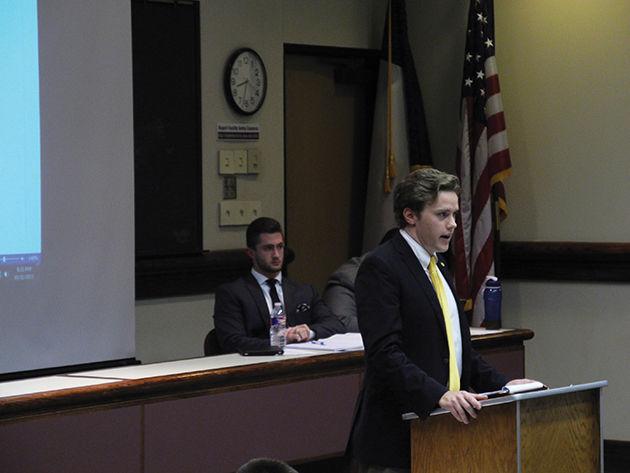A bill questioning Judicial Court’s behavior was shot down at Wednesday’s Student Senate meeting. At the meeting, senate also passed a resolution showing support for Uber and introduced a bill that encourages an extension of the concrete wall on Northgate.
Speaker of Student Senate Aaron Mitchell introduced the Judicial Court Accountability Act, which aimed to address what he called failures on the part of the Judicial Court. The bill, which made the case for term limits and a revocation of lifetime tenure, failed with 6 for, 39 against, and 7 abstaining.
Student Senate also unanimously passed a resolution to express support for Uber in College Station. The resolution encourages the College Station City Council not to levy any new taxes on or create new licensing requirements for the rideshare service.
A bill to extend the concrete barrier the full length of the Northgate Business District, was introduced in part by Rules and Regulations Committee chair Carlos Sonka and was referred by a unanimous vote to committee.
Sonka said the idea for the bill came about after the deaths of two pedestrians on Northgate Saturday night. Sonka said the extension of the wall wouldn’t have saved the pedestrians Saturday but that the incident is a reminder that the safety of people on Northgate is important.
Mitchell said the Judicial Court Accountability Act is needed because impartiality is rare on a college campus.
“You have social organizations, you have allegiances to your friends, the smaller of a group you get the less impartial it becomes — especially within the SGA body,” Mitchell said. “I do not believe the justices are impartial appointments, I believe they are political appointments.”
In light of the vote, Chief Justice Jake Smith said J-Court’s priorities is moving forward in a spirit of cooperation with the other two branches of student government.
“I’m happy the senate was able to uphold the dignity and integrity of the judicial court.” Smith said “And now we’re just looking to move forward and co-operate with the executive and the senate.”
Off-campus Senator Abby Hutton was the first to give debate against the proposed legislation, saying the proposed model for justice confirmation seemed even more partial than the current system.
“The reason that we’re trying to do this is that we don’t have political appointments, but the thing that just doesn’t sit right with me is that instead of having a political appointment that just sits for four years, we’re now going to be re-appointing them every year.” Hutton said
Hutton said this presents an opportunity for the problem of bias and favoritism.
“There’s an opportunity that if I, as Speaker of the Student Senate, also happen to have a best friend who is also the Student Body President, I now have a two-thirds vote on [the nominating] committee alone to influence the appointment for justice,” Hutton said.










